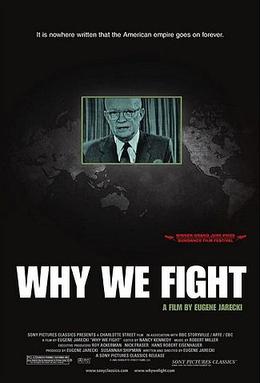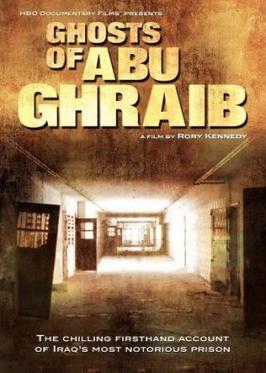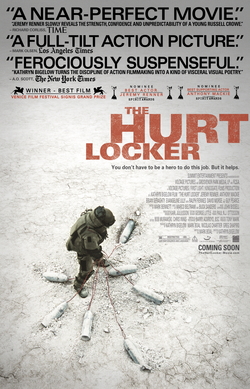Here we are at the end of the Iraq War, at the end of a long and winding and exhausting time period in American international politics. But listen: I’ve never made a political post on my blog before, and I’m not about to start now!
Over the course of the last seven years or so, I’ve read and watched a great deal about our overseas conflicts, attempting to stay informed amidst the avalanche of misinformation. While the wars in Iraq and Afghanistan have been undeniably horrific, a handful of gifted filmmakers have given us some fantastic documentation and commentary on what exactly occurred in those countries, what led to the wars, what we can expect afterward, and what sort of human toll has been exacted. So here on my blog, I’ve collected the short reflections I wrote for my favorite films (by “favorite,” I mean the most insightful and/ or comprehensive) to come from the wars in Iraq and Afghanistan. The first reflection includes a bolded list that can actually function as a sort of checklist for interested viewers.
No End in Sight (2007)
Quite possibly, the most comprehensive Iraq film produced. No End in Sight offers a detailed analysis of the war, of administrative ineptitude, and of the dangerous arrogance of the United States of America (and the American military). It’s impossible to watch this film and not become enraged for the Iraqi people and for our soldiers on the front lines, so perfectly painted is the picture of over-confident and dishonest politicians.
Remarkable, also, is the range of interviews in No End in Sight. Obviously, there are no sit-downs with Cheney, or Bush, or Rice, but we’ve got Armitage, who was a key player, and we’ve got a number of other administrators and military personnel. This movie feels like a continuation of the books Fiasco and State of Denial, more all-encompassing, with an extended timeline that those books weren’t yet able to include. I would include this movie as the final piece of a sort of Iraq War Seven-Part Film Fest.
Begin with Why We Fight to see the political motivations behind the war, move into Generation Kill (more below) for the soldier’s perspective, watch Shadow Company for the civilian contractor’s perspective, check out Taxi to the Dark Side (or Ghosts of Abu Ghraib or Road to Guantanomo) for torture and abuse, Baghdad High for the Iraqi civilian perspective, Baghdad E.R. to gain insight into military funding deficiencies, The Pat Tillman Story for the perspective of the families of soldiers, and finally No End in Sight as a haunting conclusion.
Certainly, with the war now ending, we’ll have some more comprehensive documentaries, and we’ll gain additional perspective. But the above list served me pretty well (circa 2007-2010).



Ghosts of Abu Ghraib

Disturbing documentary, told from the perspectives of the former guards and inmates at Abu Ghraib. The filmmakers wisely allow the people and the photos to tell the story, and avoid Michael Moore-esque editorializing; as a result, their argument is rich and compelling, rather than preachy.
Taxi to the Dark Side

After watching HBO’s Ghosts of Abu Ghraib, I’m sad to say that there was very little in this documentary that was shocking or new. That’s not, of course, because the images weren’t still disturbing, but simply because Ghosts of Abu Ghraib had shown them already.
Taxi to the Dark Side, though, is a much slicker, better produced documentary, and the range of interviews is astounding. The idea of centering the entire inquiry into torture around a single victim, Dilimar the cab driver, was also a very wise choice, humanizing the victim in the opposite way that the military dehumanizes the torture victims by placing bags over their heads, etc. Definitely worth checking out, although–if you’ve seen Ghosts of Abu Ghraib–this film won’t exactly surprise you or offer any new thesis.
Generation Kill

In the wake of a thousand Iraq War movies, all driven by political agendas or twisted by an overt commentary, Generation Kill is a breath of fresh air. Though it still has a perspective to share on the latest Iraq invasion, and though it still highlights a great deal that is wrong with the military and with war-time bureaucracy, it is one of the few Iraq War films that feels honest. It cares about its characters, and pulses with humanity. It has fun with liberals, and it has fun with ultra-right-wingers, but in no way does it make either appear to be a villain.
This is a long mini-series, of course, but it’s very rewarding, and will leave you both with a newfound sense of respect for the men and women in the military, and an unsettling feeling about what the best of them must endure, and the attitudes they must adopt if they are to succeed in the results-driven armed forces. Great viewing, and never dull.
The Fixer: The Taking of Ajmal Naqshbandi
Another great film to put into any annotated bibliography of Iraq/ Afghanistan war documentaries, The Fixer takes as its subject the kidnap and murder of an Afghan translator, working for journalists, who is essentially ignored by his government in his time of need. It uses this subject to ask deep and lasting questions about corruption in the newly installed Afghanistan government, and to ask questions about the American willingness to also ignore what is happening in our own wars when it is happening to those with brown skin.
Afghanistan has become a sort of Korean War, a forgotten war, but it isn’t close to finished, and its effects will linger for a long time. The Fixer is an effective documentary because it not only profiles this single story, but uses it to make a much broader argument about the current state of affairs.
The Hurt Locker

While I thought “The Hurt Locker” was an amazingly well-constructed film, very tense, very well-acted, very relevant, my first reaction upon leaving the theater (sadly) was that it wasn’t quite as good as Jarhead or Generation Kill. I’m not quite sure why this was my first reaction, because Jeremy Renner gives us a hate-him-even-while-loving-him male character as memorable as any in film history, from Gordon Gekko to Tyler Durden.
But the film’s themes simply seemed to recap all that we saw in Generation Kill (a new type of soldier is emerging, one who feeds on adrenaline and is desensitized to violence) and Jarhead (the inability to function in the regular world after war). Of course, I probably approached The Hurt Locker with the wrong attitude, thinking that it might unseat one of those two films as the “best” Iraq war movie.
It’s a great piece of work…tremendous, in fact, with all the grit and unexpected explosive violence of Black Hawk Dawn, so maybe I should be thinking that it (right now) completes a sort of Essential Iraq Trilogy with those two other films, amidst a forgettable collection of other war films.


















